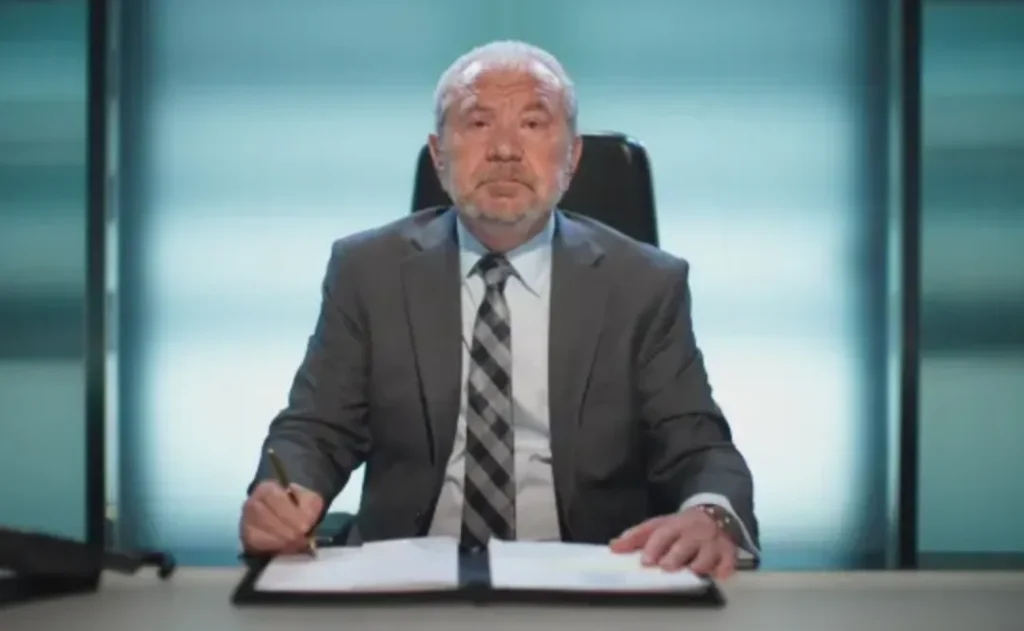
In a dramatic turn of events on the latest episode of BBC’s “The Apprentice,” Lord Alan Sugar, the show’s formidable boss, made the pivotal decision to terminate Max England, a 30-year-old contestant, after he demonstrated a lackluster performance in a high-stakes live shopping channel task. This decision not only underscores Sugar’s unwavering standards but also raises critical discussions about leadership, accountability, and team dynamics in competitive business environments.
The Context of Dismissal
Max England, who took on the role of project manager for his team Parallel, faced significant challenges during the task that involved selecting products for a live shopping segment. Despite his best efforts and intentions, his choices did not resonate effectively with the expectations of the task, ultimately leading to his dismissal. Lord Sugar, at 78, has built a reputation for his no-nonsense approach and clear expectations, further solidified by his remarks in the boardroom.
In a candid assessment of Max’s performance, Sugar stated, “Max hasn’t impressed me very much… You made quite a lot of mistakes.” This direct feedback is emblematic of Sugar’s leadership style, which prioritizes accountability and transparency over placating contestants. It serves as a reminder that in the world of business, results are paramount, and leaders must be prepared to make tough decisions for the greater good of their organizations.
Max England’s Perspective
Following his dismissal, Max England expressed disappointment yet retained a sense of pride in his decisions. He acknowledged the competitive nature of the show, stating, “I can leave my head held high, and I left everything out there.” This perspective reflects a maturity in understanding that leadership entails risk, and sometimes, even well-intentioned decisions do not yield favorable outcomes.
Max also highlighted the importance of collective team responsibility, suggesting that any of his teammates could have faced the same fate based on their performances. He noted the specific shortcomings of his teammates, Amber Rose, Chisola, and Dean, revealing the intricate complexities of teamwork under pressure. Such insights offer valuable lessons in collaborative dynamics, particularly in high-stakes environments where each member’s contribution can significantly sway the outcome.
Leadership in Focus
Alan Sugar’s decision to fire Max England presents a teachable moment about the essence of leadership. It emphasizes the necessity for leaders to not only delegate responsibilities but also to hold their teams accountable for their actions. In Max’s case, his role as project manager elevated him to a position where he had to answer for his team’s failings, a reality that often surfaces in the business world. The ability to navigate such situations with grace and humility is a hallmark of effective leadership.
Furthermore, Sugar’s approach highlights the critical aspect of decision-making. Leaders must assess risk, understand their team’s strengths and weaknesses, and make choices that align with the overall goals of the task or project. As Max reflected on his leadership journey, it became clear that every decision carries weight, and acknowledging failures is a crucial part of growth.
The firing of Max England by Alan Sugar serves as a poignant reminder of the values and challenges inherent in leadership. In the competitive arena of “The Apprentice,” where stakes are high and performance is scrutinized, decisions must be made with clarity and conviction. Lord Sugar’s uncompromising stance on accountability reinforces the idea that in business, results matter — a lesson that resonates far beyond the boardroom of a reality show. As viewers, we are left not only with the intrigue of competition but also with valuable insights into the world of leadership, accountability, and the relentless pursuit of excellence.
